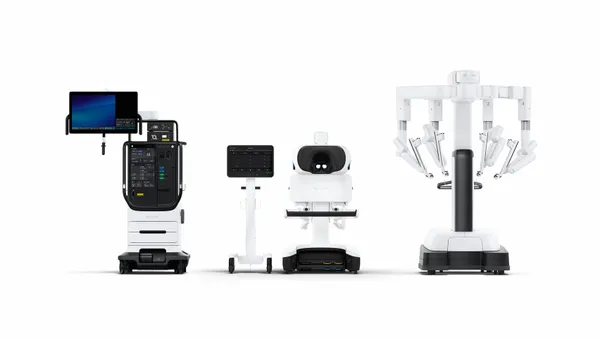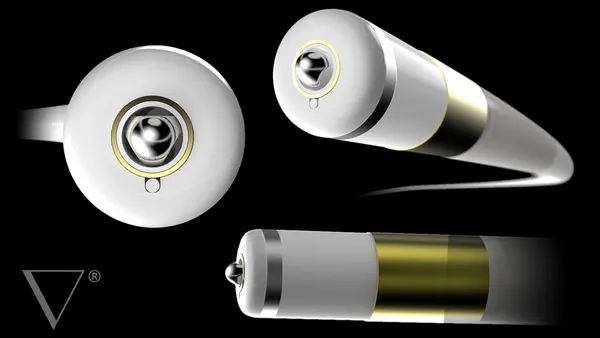Dive Brief:
-
Medtronic has started selling its IN.PACT Admiral drug-coated balloon (DCB) in Japan, according to a press release.
-
Japanese officials approved and agreed to reimburse the device last year, setting Medtronic up to become the first company to market a DCB in the country.
-
Medtronic secured the regulatory clearances on the strength of clinical data linking IN.PACT Admiral to better outcomes than uncoated balloons in Japanese patients with peripheral artery disease (PAD).
Dive Insight:
Companies including Boston Scientific, C. R. Bard and Medtronic have developed DCBs to overcome the limitations of plain old balloon angioplasty (POBA) and stents.
Patients who undergo POBA are at risk of complications such as acute vessel closure, but device developers have struggled to replicate the strong coronary performance of drug-eluting stents in the peripheral vascular system. Studies in the femoral artery, for example, have linked stents to high rates of restenosis.
DCBs are free from the long-term risks of leaving a metallic implant in the patient. The devices work like traditional angioplasty balloons: The physician guides the DCB to the diseased blood vessel and, once in place, the balloon inflates, flattening plaque against the atrial wall and allowing normal blood flow to resume. The difference from POBA is that DCBs release a drug to stop the buildup of scar tissue.
Medtronic has generated data linking its paclitaxel-coated balloon to better outcomes than standard percutaneous transluminal angioplasty (PTA). The data enabled Medtronic to bring IN.PACT Admiral to market in the U.S. in 2015.
Since then, Medtronic has run a clinical trial in 100 Japanese patients to confirm the efficacy of its DCB is unaffected by ethnicity, which is known to influence the pathophysiology of PAD. After one year, the vessels of 93.9% of patients in the DCB group remained expanded compared to 46.9% in the PTA cohort. The rate of major adverse events was lower in the DCB arm.
The Japanese Ministry of Health, Labor and Welfare (MHLW) approved the DCB for the treatment of PAD in the upper leg and behind the knee last year. The MHLW went on to agree to reimburse the device in December.
Medtronic has since completed a 300-patient post-market clinical trial. The company has committed to a full commercial launch.
"Earlier this year, we presented both one- and two-year results from the IN.PACT SFA Japan study, representing consistency in clinical data shared on IN.PACT Admiral to-date," Tony Semedo, president of Medtronic Japan, said in a statement. "Now with the completion of our post-market study, we will become the first company to bring DCB technology to Japanese physicians and their patients."












